On February 14th and 15th, the Ageing and Dementia Group took their knowledge and favourite experimental tasks to Hove Park Upper School for the Bright Sparks Weekend. The Bright Sparks weekend included a variety of University groups and societies from around the South East of the country, and we were excited to be a part of this exciting event.
The Brighton Science Festival has been growing in popularity across the last few years, and we feel this weekend really demonstrated what a huge success this event has become. The weekend was busy, full of enthusiastic children and even more enthusiastic parents, and a constant flow of visitors kept the presenters at the event constantly on their feet.
Our Stall, the Genes, Eyes and Brains stand, centred upon two interactive tasks.
Sam Hutton demonstrated the latest eye-tracking technology in a display of the direct relationship between cognitive effort and pupil size. Volunteers were able to watch their pupil size change in real-time in response to an attention task of varying difficulty, providing neat, memorable evidence for how our cognition directly relates to our physiological responses.
Visitors to the event also had the opportunity to participate in a classic measure of sustained attention, the rapid visual processing task. Children were asked to battle it out with their parents for a place at the top of the leaderboard. The research group was hoping performance on this task across the different age groups would provide a neat demonstration of attention declining with increasing age. However, across the weekend we saw the parents massively triumph over the youngsters, contrary to expectations. We suspect this may be due to an overload of sherbet and an exciting, noisy environment on the kids’ part.
The selection of crafty activities available on the stall was also a hit, with many children to be spotted around the event sporting homemade brain caps. Hopefully some knowledge was also taken away from the event, with the children being encouraged to understand the principles of genetic inheritance through simple origami, posters and quiz sheets. More importantly, hopefully an enthusiasm for science was generated by the event, and both children and parents will be encouraged to think of scientific research as something important and exciting.
Finally, we would like to thank everybody for the wonderful feedback we received. The weekend had a great atmosphere and the group looks forward to getting involved with similar activities in the future.
Thank you to Joss Williams for the photographs.


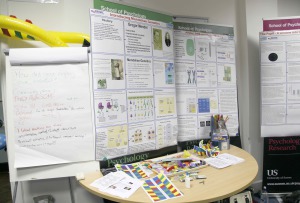
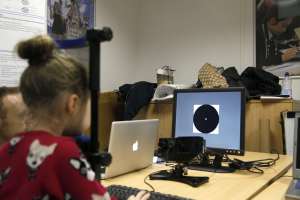

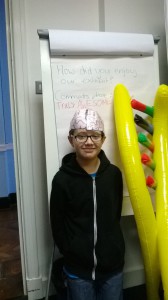
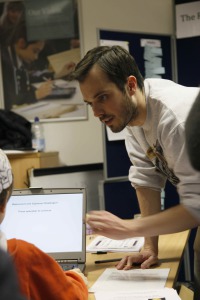

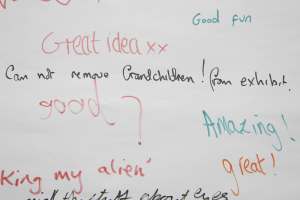
Recent Comments